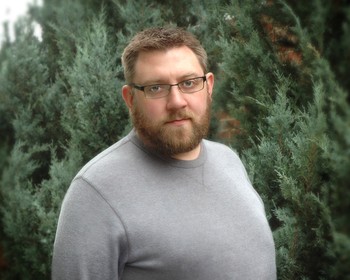A white man’s frank and repentant exploration of how racism finds a home in white folks’ souls.
 Perpetually numbed and easily shocked
Perpetually numbed and easily shocked
Why the white soul remains untransformed in the face of so much racial injustice
by Jeffrey A. Schooley
Writing these columns for the past half-year has revealed to me what I only instinctually understood before: the white soul is a mix of conflicting emotions. Remarkably, my soul can be numb (blind even) to racial injustice, while at the same time easily shocked by its by-products.
The all-too-common reality of racial intolerance, dutifully reported by the news media, is frequently met with the shrill ringing of alarm bells. It seems with each story of a young, black man dead on the streets, and with each report of a racially-profiled high school student, the airwaves, Internet, and Facebook feeds flood over with the surprised gasps of shocked citizens.
That people are shocked by atrocities is not, of course, in and of itself a bad thing. I hope my soul never becomes so calloused to the world’s propensity for sin that it gives sin a passing glance on its way to the numbing anesthesia of Netflix. What alarms me, though, is that I can witness these events unfolding and realize that I have—somehow—completely forgotten about the daily social realities that give way to such events. If the responses of my friends and colleagues is any indication, I am not alone in this.
The white soul has a startling capacity for being shocked by racial injustice. It does not, however, find itself transformed by what it sees and learns. That it is not transformed is evidenced by how quickly my soul can become numbed to the daily realities of those who aren’t me. Somehow, after each protest has died down, and after each city neighborhood has quit smoldering, my soul returns to its status quo.
I will always leave room for the acknowledgement that I am unique in this regard. Humility, at the very least, requires such recognition. But I don’t think I’m alone. If the majority of white souls really were attuned to daily racial injustices, then things would change (assuming of course that the soul, in its sinfulness, doesn’t prefer things as they are). That this lawless litany—this chaotic call and response—of racial injustice continues to exist is proof enough that, on average, the white soul labors under the twin realities of numbness and shock.
Such sways in emotion and experience are rarely beneficial for spiritual growth. For this reason the church has long held up temperance as one of the seven virtues. Temperance is a trust in moderation. It is typically ascribed to pleasures, but more broadly understood, it drags us out of the wild swinging of existence and partners with another virtue—prudence—to create faithful reflection and discernment.
In my estimation, temperance and prudence are the necessary virtues to confront our shocked numbness.
Of course, such virtues might seem an odd recommendation to those who emphasize the importance of racism’s social structures and power relations.
One of the blessings of this column has been to relieve me of the misguided notion that racism is either an individual issue or a social issue. Instead, there is a continuum between the spiritual and the social. On this continuum each aspect bleeds into the other, and it is the evil of racism to keep us focused on just one cause—and therefore seeking the silver bullet to destroy racism forever—rather than prudently acknowledging that a holistic approach is necessary.
So this month’s spiritual discipline is the holistic approach to racism that includes the faithful application of the virtues so that we might be reformed from our fruitless wild swinging between two useless poles and, instead, cultivate the sort of character that might find a faithful way forward. The virtues are necessary because they span the continuum. They are never about the individual, but neither are they exclusively about the social. Instead, they recognize the intrinsic link between the two, seeking transformation in the individual so as to transform the world, but recognizing that transformed worlds will spawn further transformation of the individual.
Jeffrey A. Schooley is a teaching elder at Center Presbyterian Church in McMurray, Pennsylvania. He is also a PhD in Theology candidate at Duquesne University in Pittsburgh. Biking, Netflix, reading, teaching, and spending time with his wife and dog round out the rest of his life. He can be reached at ThinkLikeChristians@gmail.com.